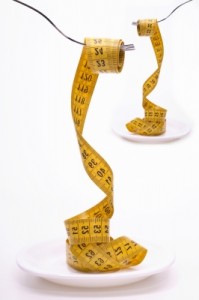Want to burn fat while also boosting energy? These five thermogenic foods are great sources of vitamin B12, a nutrient essential for promoting a good metabolism, converting food into energy, and supporting stamina for maximum weight loss. Here are some of the best fat-burning foods that support healthy B12 levels.
Does fat really burn?
Fat doesn’t melt, but it can be converted into energy. Certain foods require a lot of energy just to digest- more energy than the food itself contributes in calories.
Thermogenic foods like meats, vegetables, and legumes that pack vitamins and minerals help your body use up stored fat calories efficiently, giving you a natural edge on weight loss…without suffering vitamin deficiency.
Vitamin B12 is important for DNA synthesis and cellular energy, so it makes sense that to control your weight and burn the most fat, you would increase your intake of vitamin B12.
Fat-burning foods with vitamin B12
Chicken breast: A standard serving of chicken breast contains 300 lean calories, but your body burns about 100 calories just digesting this vitamin B12-rich protein source.
Beef: Lean beef is one of the richest sources of vitamin B12, and like with the chicken, you burn about 30% of the calories of a serving of meat just breaking in down into energy.
Seafood: Fish is a powerhouse of vitamin B12, and also helps you feel satiated after a meal. Salmon and mackerel are great fat-burning seafood dishes that are high in vitamin B12.
Cheese: Low-fat dairy products like cheese are rich in calcium, vitamin B12 and vitamin D. They also provide a sense of fullness that will help you achieve your weight loss goal.
Eggs: To burn fat, eat the whole egg, including the yolk. Eggs are excellent sources of vitamin B12, contain healthy cholesterol, and boost your metabolism.
Get even more B12
Many of us don’t get enough vitamin B12 from our diet, as combined health factors limit your ability to properly digest it from the foods we eat.
Chronic illnesses like fibromyalgia, migraine, celiac disease, and Crohn’s disease limit absorption of vitamin B12, and often lead to vitamin B12 deficiency.
Also, if you have had a gastric bypass, take medications for GERD or diabetes, or suffer from autoimmune disorders, then you are doubly at risk for developing severe vitamin B12 deficiency.
If you notice symptoms like extreme fatigue, brain fog, memory loss, depression, or painful tingling and numbness in your hands and feet, then you may be experiencing the early signs of vitamin B12 deficiency, despite eating a healthy diet of foods that are rich in vitamin B12.
To make certain you’re getting enough vitamin B12 for energy, metabolism, and weight management, it’s important to supplement with approximately 1,000mcg of vitamin B12 (cobalamin) each week, preferably in a non-dietary form.
This may include sublingual vitamin B12, vitamin B12 injections that require prescription, or other OTC sources of vitamin B12 that don’t require prescription.
Your turn!
Do you have any questions or suggestions? Please leave your comments below.
Share with your friends!
If you found this article helpful, then please share with your friends, family, and coworkers by email, twitter, or Facebook.
Like this? Read more:
6 Foods that Fight Chronic Pain
The Best- and Worst- Cooking Oils for Heart Health
Prevent Vitamin B12 Deficiency: Beyond Nutrition
The DASH Diet: Good Source of B12?
Sources:
10 Fat Burning Foods You Should Be Eating
Image courtesy of luigi diamanti/free digital photos


